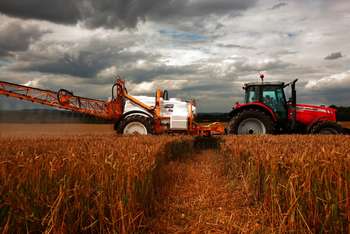Bioindustrie - anticipazioni sul bando BBI JTI 2016
Attesa per il 18 aprile la pubblicazione del bando 2016 dell’Iniziativa Tecnologica congiunta sulle Bioindustrie (BBI JTI)

- Bioindustrie - bando BBI JTI, approvati primi progetti Ue
- Bioindustrie - bando BBI JTI, al via domande per fondi Ue
BBI JTI
BBI JTI è un partenariato pubblico-privato (PPP) promosso dalla Commissione europea nell’ambito della Strategia europea per la Bio-economia con l'obiettivo di accelerare la creazione di una bio-industria europea competitiva.
Il PPP vede la partecipazione dell’Ue, con la Commissione europea, e del consorzio Bio-based Industries, composto da più di 200 membri, tra grandi imprese e PMI, cluster regionali, associazioni, istituti di ricerca e piattaforme tecnologiche, appartenenti a settori diversi, dall’agricoltura all’industria chimica. Al partenariato aderisce anche l'azienda italiana Novatom Spa.
L’iniziativa ha a disposizione per il periodo 2014-2020 un budget complessivo di oltre 3,7 miliardi di euro, di cui 975 milioni di euro stanziati dall’Ue tramite Horizon 2020 e 2,73 miliardi di euro provenienti dal settore industriale.
Bando 2016
Il 18 aprile, in base al Work programme annuale, sarà pubblicato il bando 2016 con un budget di oltre 161 milioni di euro per:
- azioni di ricerca e innovazione (50 milioni di euro);
- azioni dimostrative (67,6 milioni di euro);
- azioni Flagship (40 milioni di euro);
- azioni di coordinamento e supporto (3,5 milioni di euro).
Sono previsti diversi argomenti (topic):
- BBI 2016.R1 - Valorisation of the organic content of wastewater as feedstock, contributing to the renewable circular economy
- BBI 2016.R2 - Develop consolidated bioprocesses for direct fermentation into bio-compounds for chemicals and materials
- BBI 2016.R3 - Improve control over microorganism growth in bio-catalysis operations in order to reduce/avoid contamination without antibiotics
- BBI 2016.R4 - Flexible biorefining technologies able to handle different feedstock, leading to new value chains or enlarging existing ones by utilising the same processing plant
- BBI 2016.R5 - Advanced biomaterials for smart food packaging
- BBI 2016.R6 - Bio-based alternatives to improve protection of human health and the environment
- BBI 2016.R7 - Biopolymers with advanced functionalities for high performance applications
- BBI 2016.R8 - Emerging technologies for conversion of Municipal Solid Waste and improving waste-to-chemicals value chains
- BBI 2016.R9 – Exploiting algae and other aquatic biomass for the production of molecules for pharma, nutraceutic, food additives and cosmetic applications
- BBI2016.R10 - Industrial bio-transformation for the production of bio-based chemicals
- BBI 2016.R11 – Recover and reuse enzymes to reduce costs of existing industrial processes
- BBI 2016.R12 - Emerging technologies for separation and purification of fermentation products to obtain high grade bio-based monomers at industrial level
- BBI 2016.D1 - Improve sustainability of value chains based on forest biomass and increase productivity and profitability on supply side by adapting forests to climate changes
- BBI 2016.D2 – Improvement and adaptation of industrial crop varieties and novel sources of biomass to diversify biomass feedstock for biorefineries
- BBI 2016.D3 - Valorisation of lignin and other side-streams to increase efficiency of biorefineries and increase sustainability of the whole value chain
- BBI 2016.D4 - New and optimised biorefinery approaches enabling the creation of local value chains in underdeveloped or unexploited areas
- BBI 2016.D5 – Bio-based polymers/plastic materials with new functionalities for medical, construction, automotive and textile industries
- BBI 2016.D6 - Valorisation of the organic content of Municipal Solid Waste and contributing to the renewable circular economy
- BBI 2016.D7 - Optimise technical production routes to bio-based chemicals in bio- or chemo-catalytic processes
- BBI 2016.D8 - New sources of proteins for animal feed from co-products to address the EU protein gap
- BBI2016.D9-Biomassproductiononunusedlandforconversionintoadded-valueproductswhile‘boostingruralandindustrialdevelopment
- BBI 2016.F1 - Valorisation of by-products or waste streams from the food processing industry into high added-value products for market applications
- BBI 2016.S1 – A roadmap for the chemical industry to a bioeconomy
- BBI 2016.S2 - Bioeconomy related open access research infrastructure and assessing its capabilities for industry driven development projects
- BBI2016.S3 - Open-innovation Platform strengthening cooperation and joint development of bio-based industries and downstream sectors
- BBI2016.S4 – Clustering and networking for new value chains
Le domande dovranno essere presentate entro le ore 17.00 (ora locale di Bruxelles) del 15 settembre 2016.
Photo credit: Ian Hayhurst via Foter.com / CC BY-NC-SA


